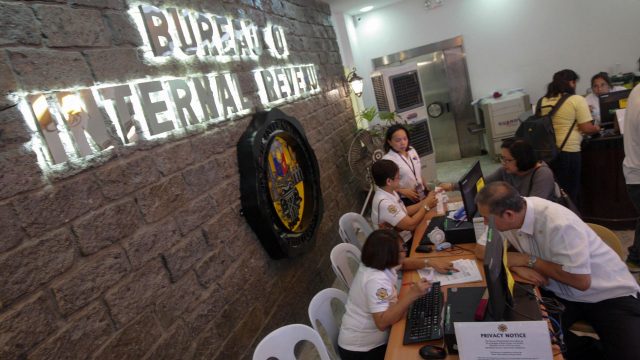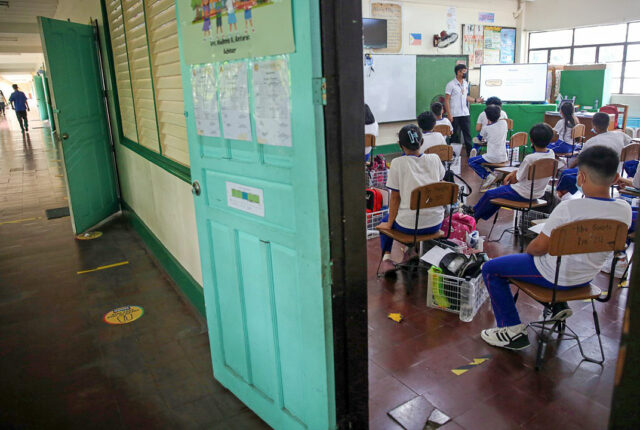THE PHILIPPINES will stand up to China in defending its sovereign rights in the South China Sea, its top security adviser said on Thursday, as the diplomatic row intensifies between the two Asian neighbors.
“We will fight for our rights,” National Security Adviser Eduardo M. Año told reporters on the sidelines of a palace briefing. “We will make sure we are protecting our… maritime rights in our exclusive economic zone.”
Mr. Año also disputed the so-called gentleman’s agreement between China and the Philippines under ex-President Rodrigo R. Duterte for a status quo at Second Thomas Shoal. The deal supposedly barred repairs to BRP Sierra Madre, a World War II-era ship that Manila grounded there in 1999 to assert its sovereignty.
“The Chinese have always talked about the gentleman’s agreement, but they cannot show anything that there’s really one,” he said.
Jonathan Malaya, the spokesman of the National Security Council, on Wednesday said the Philippines is prepared to respond to China’s attempts to foil its resupply missions in the South China Sea.
The operations would be adjusted to counter Beijing’s conduct in the waterway, he added.
Mr. Malaya said the Philippines would keep its position at Second Thomas Shoal and there would be no letup in resupply missions to a handful of Filipino soldiers stationed on a grounded warship there.
“Our commitment to maintain BRP Sierra Madre will always be there, so any attempt by China to interfere with resupply missions will be met by the Philippines in a fashion that protects our troops,” he told a maritime forum.
Mr. Malaya reiterated that the countermeasures announced by Philippine President Ferdinand R. Marcos, Jr. last week against “aggressive” actions by China’s coast guard would be “multi-dimensional” and not solely military in nature.
These measures include making “changes and adjustments” to Philippine resupply missions and operations in the South China Sea, he said without elaborating, citing security concerns.
Echoing an earlier call by the Philippine Defense secretary for the public not to fall victim to Chinese propaganda, Mr. Malaya warned of “foreign malign influence” meant to weaken the Philippines.
Mr. Año and National Security Adviser Jake Sullivan earlier discussed by telephone “coercive, aggressive and deceptive actions” by Beijing in the South China Sea.
National Security Adviser Eduardo “expressed his appreciation for the United States’ continued assurances and reaffirmation of its ironclad commitment” to their alliance, the Philippines’ National Security Council said in a statement on Tuesday.
In a statement posted on its website, the White House said Mr. Jake Sullivan and Mr. Año discussed preparations for the visit of Philippine President Ferdinand R. Marcos, Jr. to the White House and the historic Japan-Philippines-US trilateral leaders’ summit this month.
“Mr. Sullivan also emphasized US support for the Philippines following the People’s Republic of China Coast Guard and maritime militia’s dangerous actions on March 23 obstructing a lawful Philippine resupply mission to Second Thomas Shoal,” it said.
The Philippines and China have had a series of maritime run-ins, including water cannon use and heated verbal exchanges that has triggered concern about an escalation at sea.
China claims almost the entire South China Sea as its territory, policed by an armada of coastguard vessels, some more than 1,000 km (620 miles) from its mainland. China has maintained its responses have been appropriate in the face of Philippine encroachment.
In 2016, the Permanent Court of Arbitration in the Hague said China’s claims in the South China Sea had no legal basis, a decision Beijing has rejected.
The row comes at a time when the Philippines and United States are deepening military ties, frustrating China, which sees Washington as interfering in its back yard.
Mr. Marcos will meet his American and Japanese counterparts at a three-way summit in Washington on April 11, and Mr. Malaya said a “big aspect” of their discussions would be on security.
Senator Ana Theresia N. Hontiveros-Baraquel on April 2 filed a resolution seeking to investigate the so-called gentleman’s agreement with China.
The agreement is “tantamount to a surrender of the Philippines’ sovereignty and an act of treason,” she said in Senate Resolution No. 982.
Ex-presidential spokesman Herminio L. Roque earlier said Mr. Duterte had made a deal with China not to bring building and repair materials to troops stationed at the grounded vessel.
China’s Foreign Ministry earlier said a March 23 Philippine resupply mission had tried to transport building materials to the grounded ship.
The Senate resolution called on Mr. Roque to give more details of the deal and how it was brokered. — NPA and KATA












